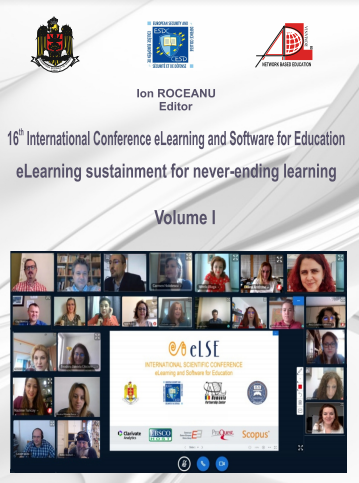DEVELOPING ALGORITHMIC THINKING BY DUCATIONAL COMPUTER GAMES
DEVELOPING ALGORITHMIC THINKING BY EDUCATIONAL COMPUTER GAMES
Author(s): Krisztina CzakóováSubject(s): Higher Education , ICT Information and Communications Technologies, Distance learning / e-learning, Pedagogy
Published by: Carol I National Defence University Publishing House
Keywords: Gamification of Learning process; Algorithmic thinking; Educational Computer games;
Summary/Abstract: Basics of algorithmic thinking should not be limited to create the right solutions and express them by a computer program, but it should also be used as a suitable methodology based on problem solving, preferably in a playful way. In many cases at school, most of the learners consider the topic of algorithms as hard and not very attractive. For beginners in programming, the knowledge of specific algorithms is not so important. The ability to understand the principles of algorithms, as well as to finding own algorithms for new problems are more desirable. One of the main educational objective is to know that an algorithm prescribes exactly what to do in the possible situations. The educational computer games based on the use of basic control structures do a good service to pupils can understand correctly how to get to the solution, using clearly defined steps with immediate feedback, with the possibility of visualizing the sequence of steps (with the possibility of corrections). Students gain new knowledge based on their own observation and discovery. The games also motivate the students to improve their algorithmic thinking that helps them to find more efficient solutions. For pupils, the aim is to acquire new knowledge by exploring and learning by doing. The main aim of the article is to show away of learning principles and concepts of algorithms by using a computer game that is much easier to comprehend by the learners and makes them more fun. During the creation of the game, which was inspired by the well-known programmable toy Bee-bot, we tried to comply with the didactic principles of illustrationality, appropriaty and individual approach.
Journal: Conference proceedings of »eLearning and Software for Education« (eLSE)
- Issue Year: 16/2020
- Issue No: 01
- Page Range: 26-33
- Page Count: 8
- Language: English

